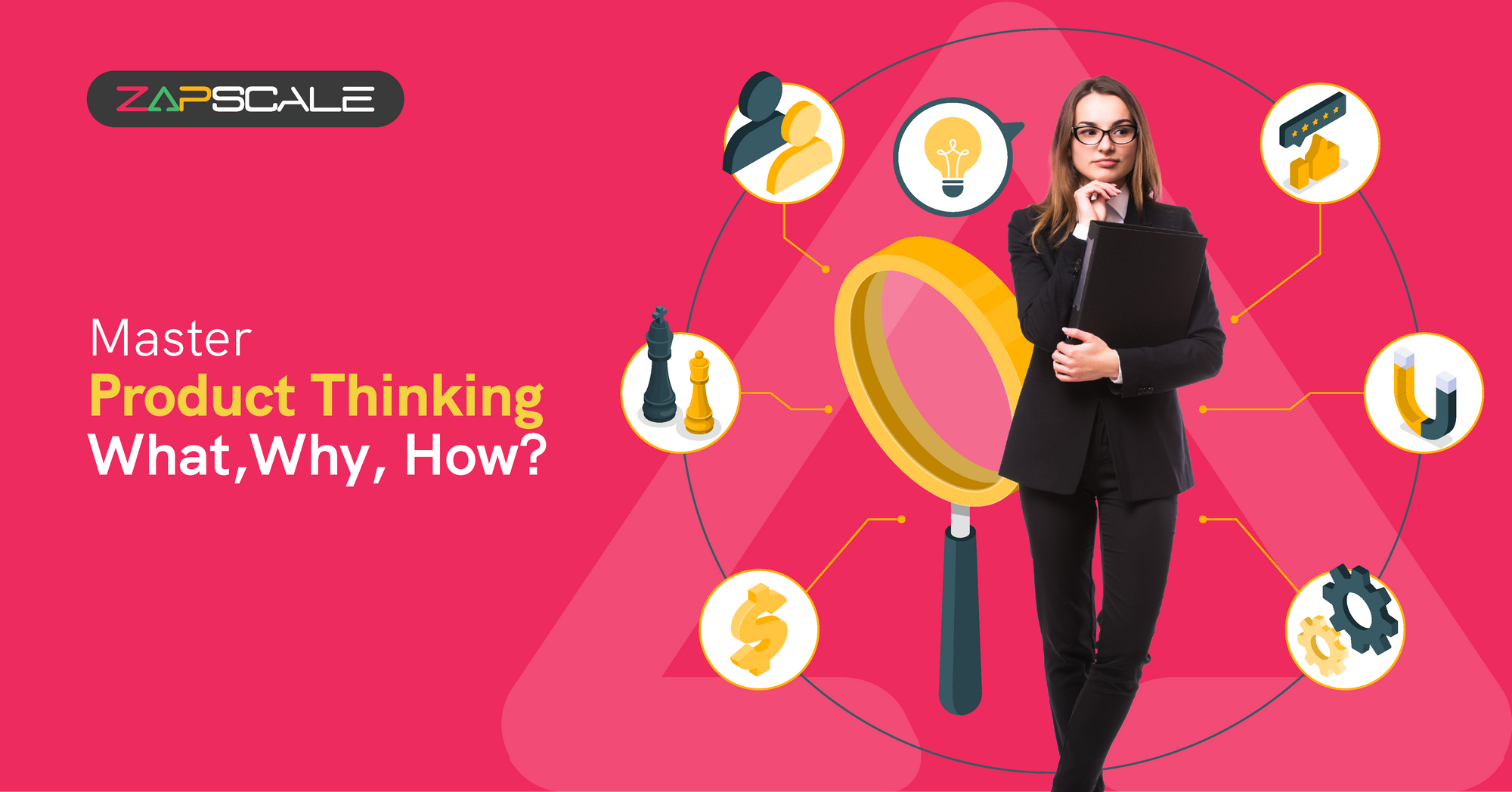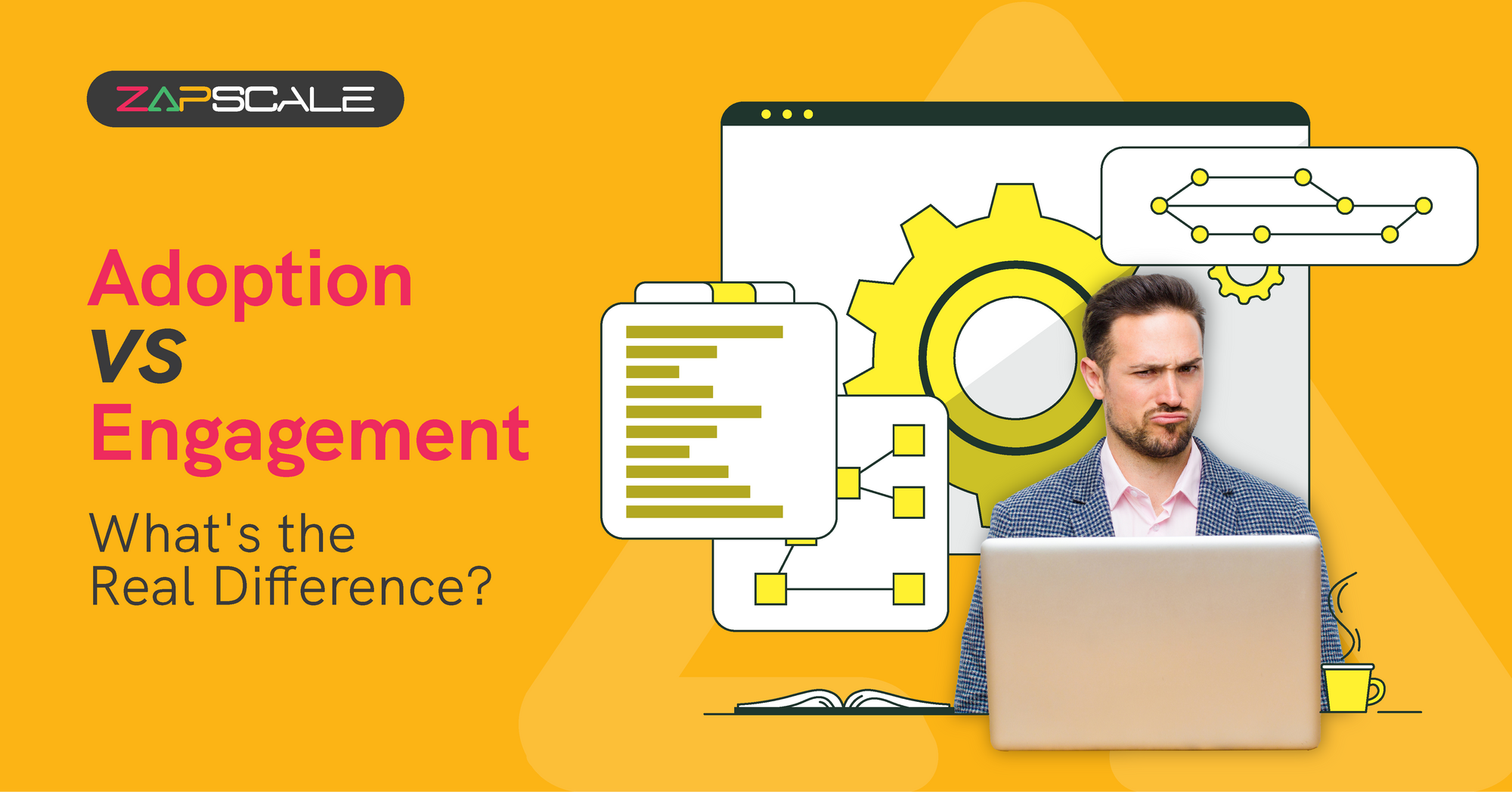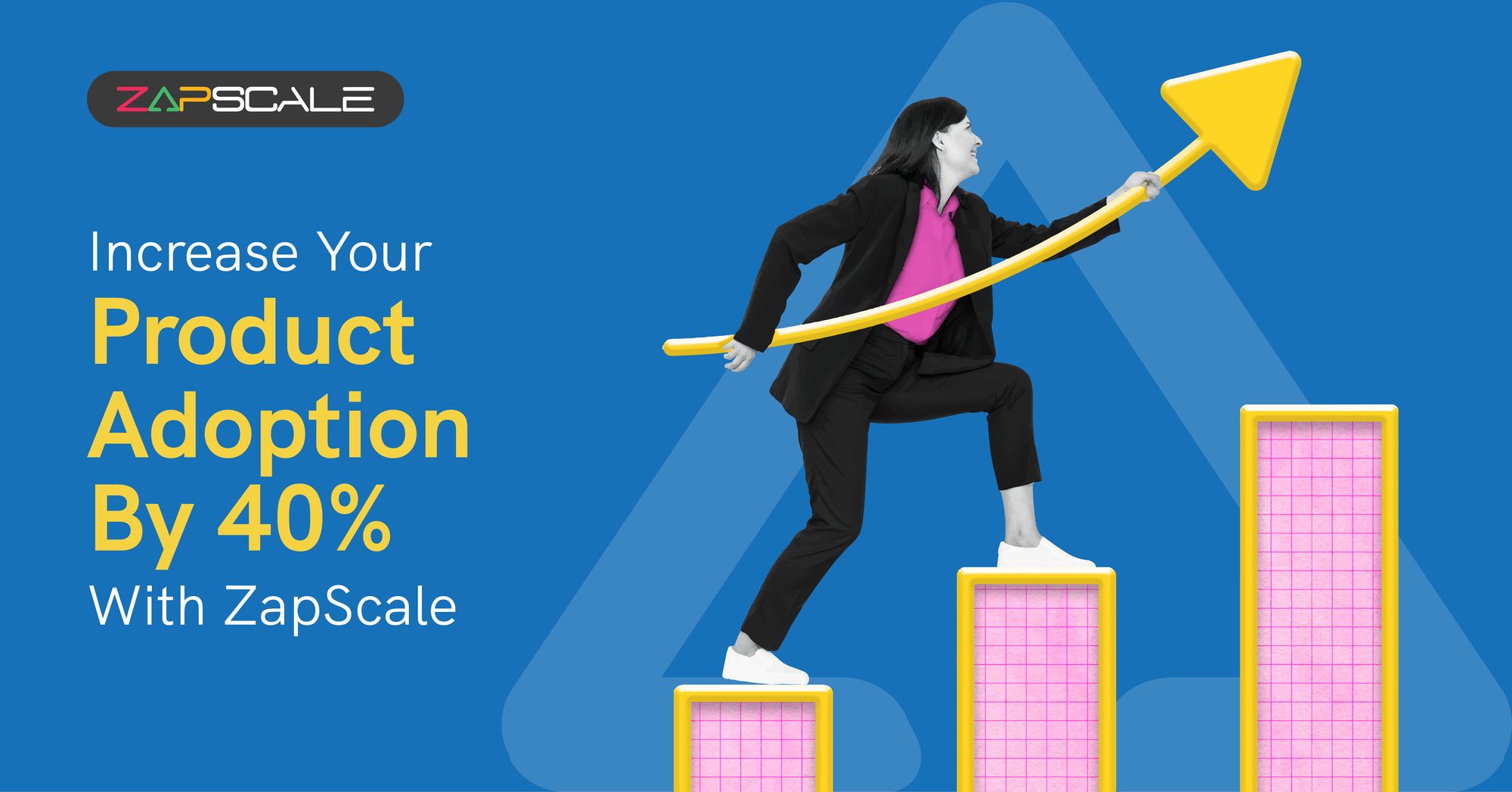CATEGORY > Customer Success Management
Customer Success Engineers: The Go-Getters of SaaS Businesses
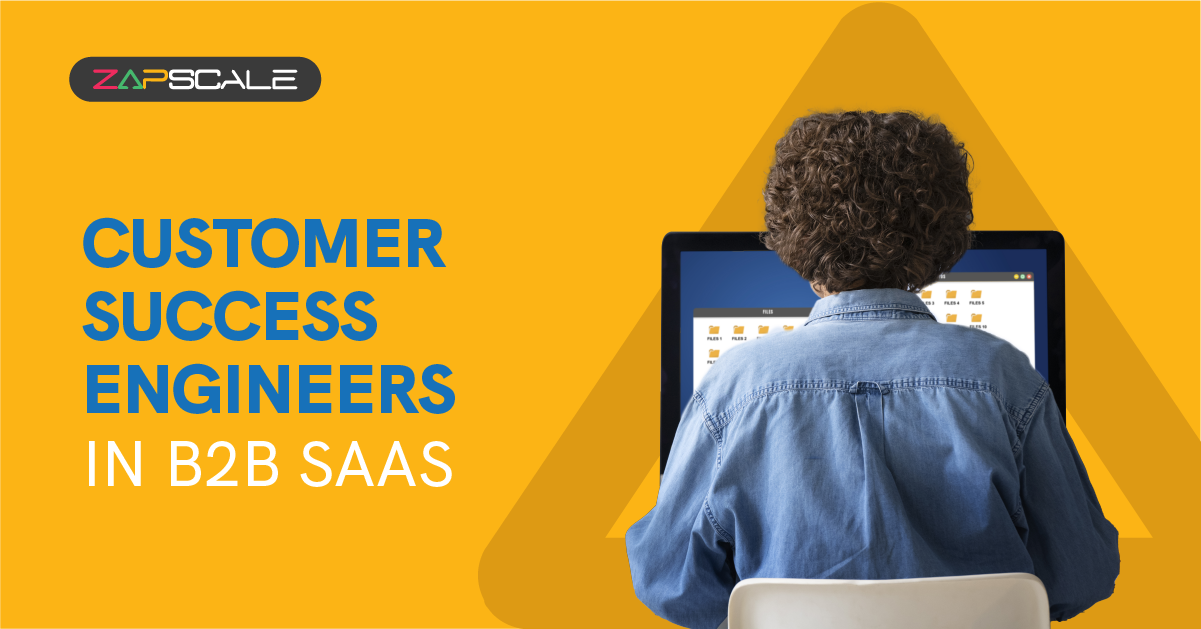
The world of customer success requires experts on board! In today's tough business environment, Customer Success Engineers are critical for keeping customers delighted and loyal. Let’s know what customer success engineers bring to the SaaS table by reading below.
Introduction
Customer success engineers provide the technical foundation for customer success. They function as a technical backbone, focusing on the technical implementation and maintenance of products for customers.
CSEs troubleshoot complex issues so that users can understand and utilize products successfully.
These smart brains ensure effective product use and resolve issues, combining technology with customer satisfaction and ensuring operational success.
Roles And Responsibilities of a Customer Success Engineer
Customer success engineers work day and night so that customers can enjoy a seamless & successful experience throughout their journeys.
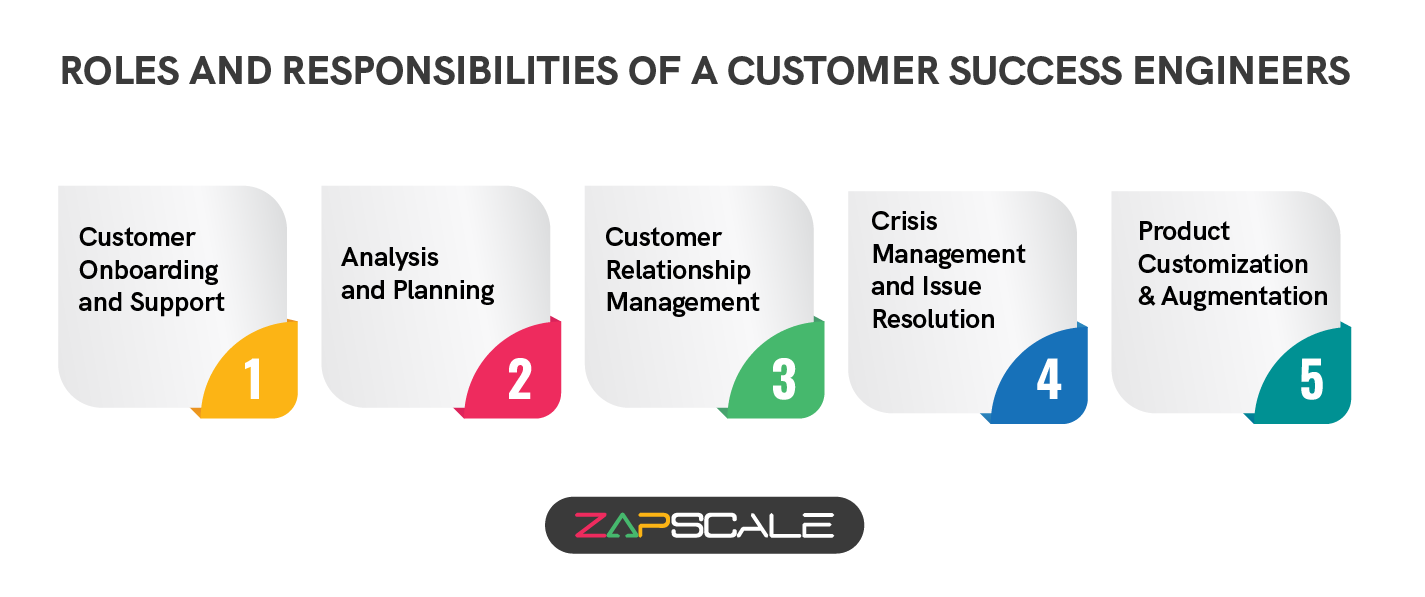
1. Customer Onboarding And Support
a. Customer Onboarding
CSEs assist new customers with the setup and initial usage of the SaaS platform, ensuring a smooth transition and maximal user adoption.
b. Technical Support
They give timely assistance to repair technical issues and address queries about software functionality, ensuring effective and efficient utilization of products by the customers.
2. Analysis And Planning
a. Data Analysis And Reporting
CSEs evaluate user data to produce actionable reports, monitor performance metrics, and offer insights that help with decision-making and enhance the customer experience.
b. Renewal And Upsell Strategies
Based on customer usage and needs, they create plans to renew customers' subscriptions and spot chances to upsell other services or features.
3. Customer Relationship Management
a. Customer Advocacy
They serve as the company's top customer advocate, making sure their needs are met and their voices are heard.
b. Customer Retention
CSEs create and implement plans to improve customer retention, loyalty, and happiness while decreasing attrition and raising lifetime value.
4. Crisis Management And Issue Resolution
a. Crisis Management
Customer success engineers respond quickly and professionally to escalated customer complaints and emergencies, preserving customer trust and achieving a speedy resolution.
b. Root Cause Analysis
They also undertake detailed root cause analyses on recurring issues to implement long-term solutions and prevent future occurrences.
5. Product Customization And Augmentation
a. Product Customization
Customer succes engineers work with customers to adapt the SaaS product to their individual needs and preferences, resulting in higher user happiness and customer retention.
b. Feature Development And Feedback
They collect user feedback to drive product development, prioritize feature enhancements, and advocate for improvements that meet user needs.
Why Customer Success Engineers Matter?
In this highly advanced digital age, customer success engineers add a human touch by projecting a friendly face to customers. Let’s learn the significance of CSEs in the pointers below:
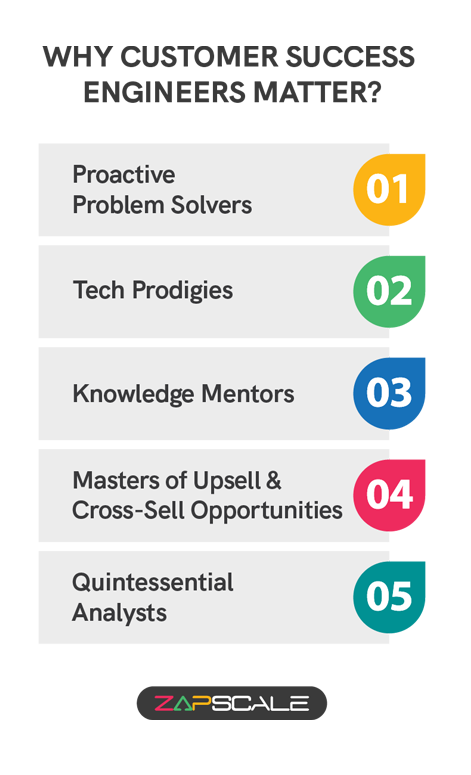
1. Proactive Problem Solvers
Customer success engineers anticipate problems by analyzing data and understanding customer demands, then offering proactive solutions.
They anticipate problem areas, improve customer happiness, and strengthen customer connections by monitoring usage, assessing comments, and remaining updated.
2. Tech Prodigies
CSEs are true tech ninjas as they excel in executing complicated technical tasks like configuration, integration, and troubleshooting. Their knowledge guarantees precise and tailored solutions based on customers’ needs and preferences.
With their capacity to resolve issues effectively and thoroughly, CSEs instill a level of confidence in customers.
3. Knowledge Mentors
These tech wizards provide value to products by offering bespoke training that includes resource creation, webinar hosting, and personalized coaching.
They provide users with experience in advanced features, best practices, and optimizations, promoting confidence and self-sufficiency. This dedication increases satisfaction, fosters loyalty, and ensures long-term revenue sources.
4. Master of Upsell & Cross-Sell Opportunities
CSEs share great relationships with customers so they are the perfect people to recommend personalized upsell and cross-sell opportunities.
Their strategic approach focuses on customer success rather than just sales, delivering continuing value and connecting product upgrades with user requirements. This proactive engagement promotes expansion, loyalty, and long-term corporate growth.
5. Quintessential Analysts
By measuring value delivered in terms of cost savings, revenue growth, or efficiency benefits, they reinforce the business case for further investment and expansion.
Top Skills To Excel As A Customer Success Engineer
Every job requires the right skill set for success in the respective field. Here’s an insight into the competencies required to excel in customer success engineering.
1. Technical Competence
a. Product Knowledge
An in-depth grasp of the product or service is required to successfully troubleshoot and propose solutions.
b. Technical Skills
Capability to manage complex configurations, integrations, and troubleshooting circumstances.
2. Business Acumen
a. Account Management
Experience handling customer accounts, renewals, and expansions.
b. Sales Awareness
Understanding of upsell and cross-sell opportunities related to customer success.
c. ROI Evaluation
The ability to demonstrate the worth of a product or service in terms of ROI.
3. Customer Interaction
a. Communication Skills
Clear and efficient communication is essential for articulating solutions and building rapport.
b. Conflict Resolution
Skilled in diplomatic conflict resolution and management of tough situations.
c. Negotiation Skills
Ability to navigate customer demands and discover mutually beneficial solutions.
4. Project Management
a. Time Management
Efficiently prioritize activities and handle several customer engagements simultaneously.
b. Goal Setting
Set specific targets and milestones for your customer success initiatives.
c. Resource Allocation
Allocate resources effectively to meet customer needs and timelines.
5. Educational And Training Abilities
a. Content Management
Ability to create instructional materials and resources.
b. Training Delivery
Experience in providing successful training sessions, webinars, and sessions.
c. Continuous Learner
Commitment to keeping up with product innovations and industry trends.
6. Analytical Abilities
a. Problem Detector
Ability to discover the underlying causes of customer issues and inefficiencies.
b. Data Interpreter
Interpret customer data and metrics to gain meaningful insights. Expertise in analyzing usage data to discover trends and anticipate customer requirements.
c. Performance Monitoring
Track and analyze customer success metrics to measure progress.
Customer Success Engineer Salary in 2024
Customer Success Engineering is undeniably a rewarding career, however, the paycheck two different customer success engineers will receive is dependent upon factors like location, skill set, and overall experience.
Here’s a glimpse of what the annual paycheck of a customer success engineer looks like in different parts of the world.
- United States: $70,000 to $130,000
- United Kingdom: £36,000 to £70,000
- Canada: C$60,000 to C$100,000
- India: ₹500,000 to 15,00,000
- Japan: ¥6,000,000 to ¥10,000,000
Source: Glassdoor
Customer Success Manager vs. Customer Success Engineer
Both customer success engineers and customer success managers are responsible for making customer success a reality.
However, they operate in distinct capacities. Let’s learn how both of them are different from each other.
1. Goals And Objective
a. CSE
Focuses on reducing downtime, resolving technical issues promptly, and boosting product functionality to enhance customer experience.
b. CSM
Ensures customer satisfaction, retention, and growth via relationship management and strategic account planning.
2. Skill Sets And Expertise
a. CSE
Must be technically adept and familiar with product architecture with problem-solving abilities.
b. CSM
Requires good interpersonal skills, strategic thinking, and business knowledge.
3. Metrics And Performance Evaluation
a. CSE
Reviews performance based on response time to technical issues, bug resolution time, and technical satisfaction metrics.
b.CSM
Evaluates success through metrics like customer satisfaction scores, renewal rates, and upsell opportunities.
4. Customer Interaction And Engagement
a. CSE
Works behind the scenes to resolve technical difficulties and engages occasionally with customers for more in-depth technical conversations.
b. CSM
Works directly with customers to understand their objectives, goals, and roadblocks.
How Customer Success Engineers Make A Difference In The SaaS World?
Customer success engineers have a substantial role to play in a B2B SaaS environment. They not only act as “Customer Advocates’’ but also ensure business advancement and strategic thinking.
Let’s find out what exclusive CSEs are in the SaaS ecosystem.
1. Customer Champions
CSEs are true as customer advocates within the organization. Their inputs have a direct impact on product development, resulting in solutions that better fulfill customer needs and satisfaction.
2. Innovation Catalyst
They act as innovation catalysts, using customer insights to inspire new product features, services, or solutions that differentiate the organization in the market and provide a competitive edge.
3. Thought Leaders
Most CSEs even produce thought leadership content, such as technical blogs, case studies, and industry insights, which highlight the company's market knowledge and thought leadership position.
Conclusion
With technological advancement, things are going to become super technical, thus, expanding the role of customer success engineers in the B2B SaaS industry. Expect to discover more organizations leveraging the power of CSEs to connect customers with internal teams for faster solutions and enhanced satisfaction.
FAQs
1. Do I need a specific degree to be a Customer Success Engineer?
While experience and technical skills frequently trump specific degrees, a background in computer science or similar subjects might be beneficial.
2. Should I learn coding to become a CSE?
Basic coding expertise (e.g.: Scripting, APIs) can help a CSE troubleshoot technical difficulties and work effectively with development teams in SaaS contexts.
3. What tools do CSEs typically use?
CSEs use a variety of tools like CRM systems, ticketing platforms, data analytics tools, and even product-specific diagnostic tools.
ABOUT THE AUTHOR
Popular from Customer Success Management
Quality Content,
Straight To Your Inbox!
Subscribe for the latest blogs, podcasts, webinars, and events!

Write a Blog
If you have experience in CS and
a flair for writing, we’d love to
feature you.
Write to us on
hello@zapscale.com
